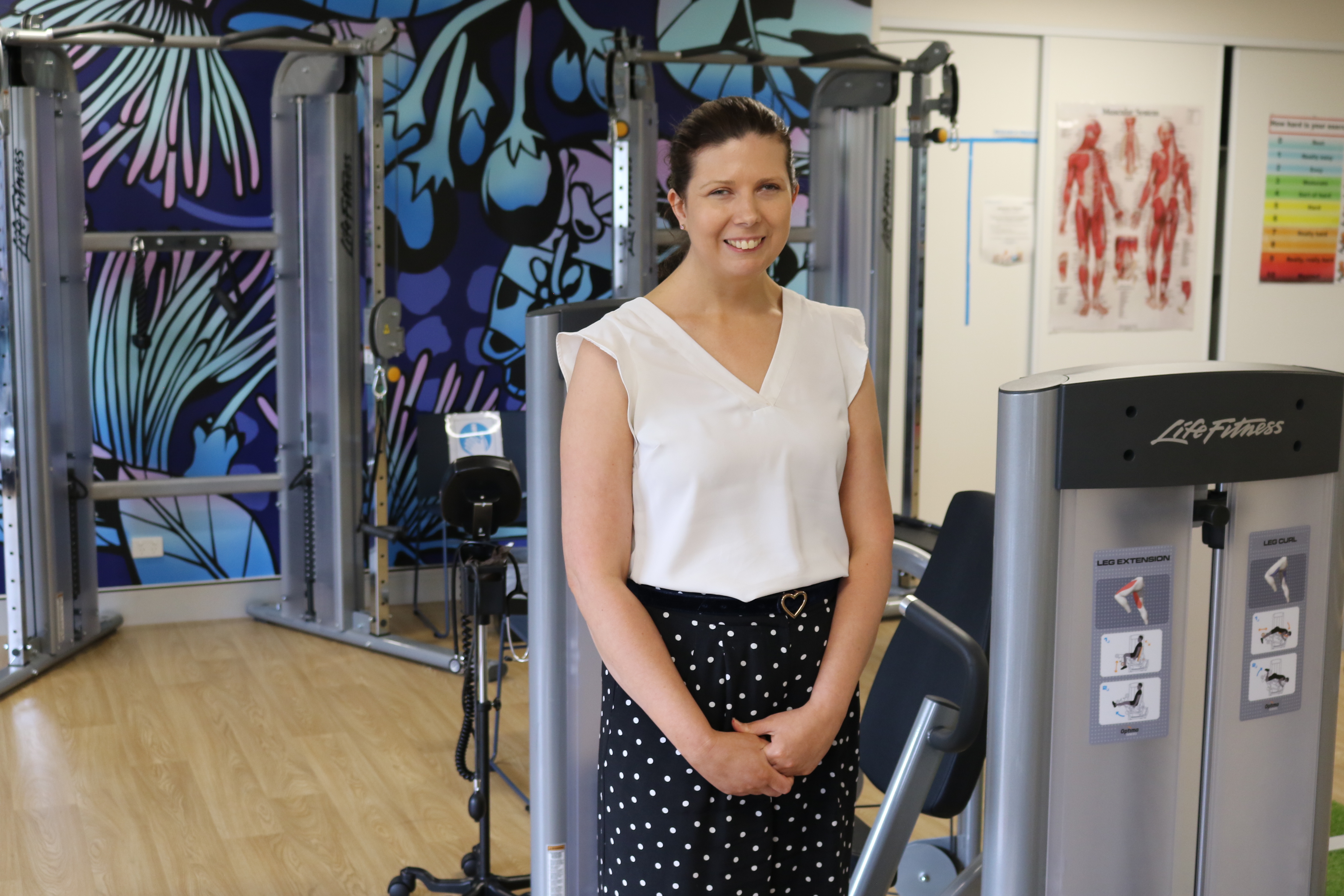Sport, Health & Wellbeing
Thriving, not just surviving
Melanie Moore knows better than most the challenges of maintaining a healthy body and mind during and after cancer treatment.
Melanie has had first-hand experience with the benefits of exercise during and after cancer treatment.
“In 2015, I was unexpectedly diagnosed with leukaemia which required high dose chemotherapy and a bone marrow transplant. At the time, the supportive care options available were minimal, so I had to implement the advice I give to clients,” Melanie says.
“I used exercise as medicine throughout each stage of my treatment, which helped me to cope and recover from treatment much faster.”
Melanie is the Exercise Physiology Clinical Supervisor at the UC Cancer Wellness Clinic which is associated with the PACES Research Group and is part of UC Health Clinics.
“We are a unique multidisciplinary teaching clinic, delivering Allied Health cancer care services before, during and beyond cancer treatment,” Melanie explains.
This purpose-built facility is located in the Canberra Specialist Medical Centre which is also home to ICON Cancer Centre.
“We prescribe individually tailored exercise programs to help mitigate treatment-related side effects, improve physical function and quality of life,” Melanie says.
“One of the most common side effects of cancer treatment is cancer-related fatigue. This fatigue can be extremely debilitating for many individuals, stopping them from performing day-to-day activities, interacting with family members and friends, and delaying their return to work.”
“Evidence has shown that exercise has a therapeutic role in managing the severity and prevalence of cancer-related fatigue. It does sound counter-intuitive, asking someone who has fatigue to exercise, but it does reduce fatigue levels. We see this happen regularly after supervised exercise sessions.”
Research has shown that exercise not only helps to reduce the side effects of cancer treatment, it is also associated with reduced risk of tumour progression, cancer reoccurrence and treatment-related co-morbidities such as osteoporosis and cardiovascular disease.
“Exercise is not just to make people feel good – there is strong evidence that exercise is medicine.”
It’s these outcomes that motivate Melanie to work in the field.
“I am passionate about helping people. My job and my research allow me to make a real difference in someone’s life.”
Exercise has a role at each stage across the cancer continuum, from diagnosis, through treatment, beyond treatment and in palliative care. The role of exercise varies depending on which stage the person is at and the type of cancer diagnosed.
“When diagnosed with cancer, it can be overwhelming and cause distress. Exercise is effective at reducing depressive symptoms and improves mental health markers. Clients often report that exercise gives them a sense of control and empowerment, as many aspects in their cancer journey are beyond their control,” Melanie says.
Melanie says that because of her lived experience, she understands the integral role the clinic plays in supporting people diagnosed with cancer. The clinic also plays a fundamental role in educating our future Allied Health professionals.
UC students studying relevant degrees are placed within the clinics, and guided by experts like Melanie for hands-on, real world training.
Melanie will be speaking at the University of Canberra’s annual Women’s Breakfast on 27 November, which will be raising funds for the UC Cancer Research Fund.
She says she wants attendees at the breakfast to know that their contribution will help support the need of change, ensuring people diagnosed with cancer have access to supportive care services at the UC Health Clinics and beyond through ongoing research.
Melanie says that she is grateful to be part of a diverse and collaborative team. Along with the PACES Research Group, Melanie will continue researching the needs of cancer patients and how to improve outcomes throughout their treatment.
She says that one project scheduled to start in 2021 will be exploring the benefit of a multi-disciplinary thrivership program – a program aimed at allowing outpatient survivors to thrive and grow as they overcome cancer.
Tickets for the UC Women’s Breakfast are available here.
Words by Elly Mackay.
